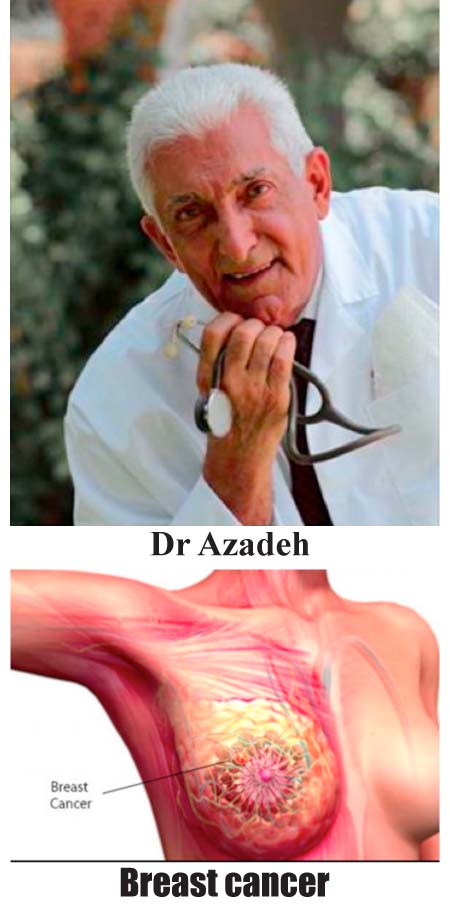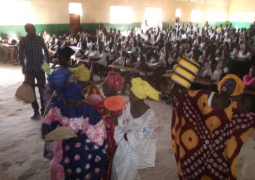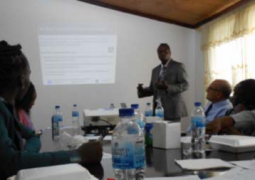
An
important way to keep up with your breast health is to be aware of how your
breasts normally looks and feels, and know what changes to look for.
Finding
breast cancer as early as possible gives you a better chance of successful
treatment. But knowing what to look for is not a substitute for screening
mammograms and other tests, which could help find breast cancer in its early
stages, even before any symptoms appear.
A
lump or mass in the breast is the most common symptom of breast cancer.
Such
lumps are often hard and painless, though some may be painful. Not all lumps
are cancer, though.
During
an interview with Dr Azadeh, senior lecturer at the University of The Gambia
and a senior consultant in Gynaecology, at MediCare Clinic in Brusubi, he
described breast cancer as a disease which is quite common in the breast of
women and it can develop into small tissue changes, but it has to be taken care
of or diagnosed before it eventually develops to a disease called cancer.
He
said cancer is a kind of disease which can eventually end up spreading in the
whole body of the woman, which can make her lose her life.
Dr
Azadeh disclosed that breast cancer is not as many diseases common in Africa,
but with women who breastfeed their babies, the incidence of the hormone is
less; therefore, the glam in the breast will eventually develop the cancer if
proper care is not taken.
In
Africa, he said, the most vulnerable age group to have breast cancer is around
forty years of age, but in Western countries they can start with twenty-five
and above.
He
added that the main cause of breast cancer is still not very well known, but
women have female hormones called histogene, that can develop changes in the
glands of the breast which can also develop cancer.
“Breast
cancer does not only affect married women,” he said, adding that more
specifically they are the ones who are more likely to get breast cancer, because
they are delivering babies and the breast is active.
He stressed that cancer is only curable if it
is recognised and diagnosed early. It could be prevented to spread in an early
stage, but in a large number of women it is late to diagnose and, at the end,
people lose their life.
The
gynaecologist pointed out that there is no preventive measure in breast cancer;
the only preventive measure is that every day, when they are taking bath, they
should feel the breast to see if there is no extra swelling in the breast.
He
stated that if there is anything in the breast like enduring pain or changes,
they should not wait too long; they should go to any clinic to check if it is
cancer or if something is developing in the breast.
He
urged women to be observant concerning their health, adding that there are
certain signs in breast cancer like pain in the breast; if the breast is
paining inside, rush to the hospital early.
He
advised women to do ‘self-examination’ of themselves, saying that they should
do examination every day on themselves and they should be frequently visiting
their doctors anytime they see strange changes in the breast.
Expressing
fear of breast cancer, Mariatou Sarr, a 21-year-old girl, explained the fear
that breast cancer left her with.
“My
mother terribly suffered at the age of 46, and finally died as a result of
breast cancer,” she said as tears filled her eyes.
Her
mother was severely sick for almost one year, and she was taken to different
hospitals and clinics in The Gambia for treatment.
“It
was at the latter part that we realised it was breast cancer which left the
family in shock, especially me”.
She
explained that her mother’s one breast was cut off, and her condition
deteriorated for the worst. They cry both day and night, but there was no way
out, until the disease led to her death.
Ms
Sarr expressed how this deadly disease changed her life during this short
period, when she lost her mother.
“Breast cancer is dangerous, and should be
diagnosed and cured early”.




